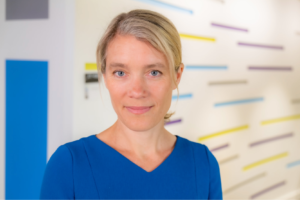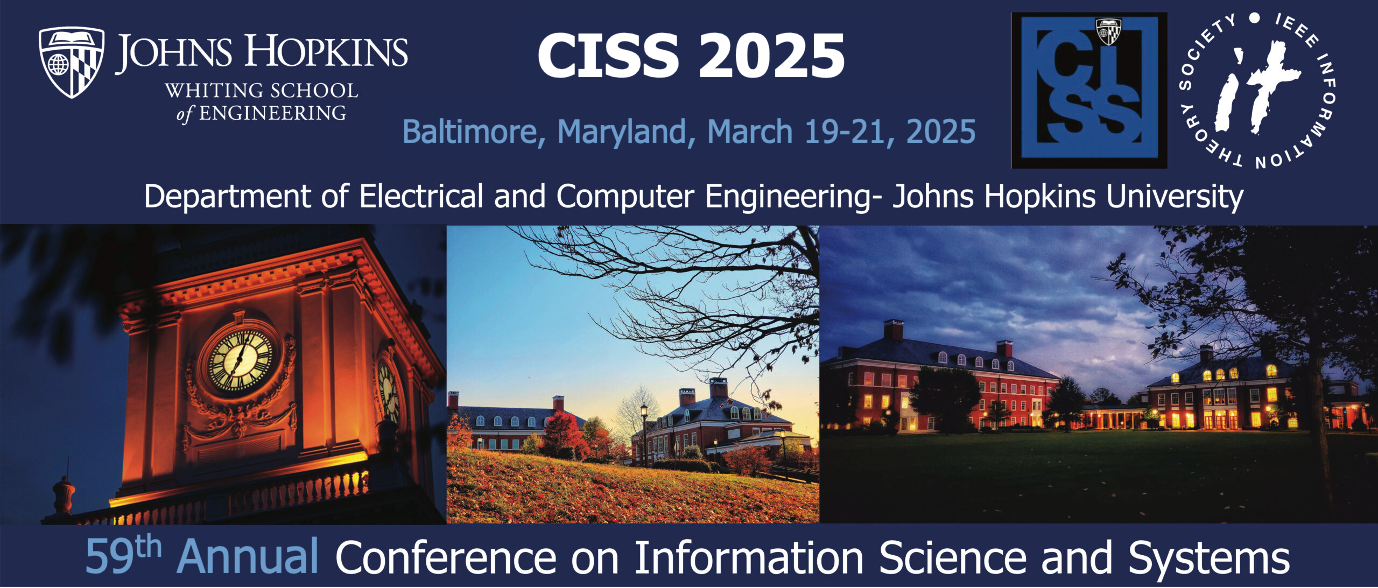Plenary Speakers
| Name | Date | Talk | Abstract | |
|---|---|---|---|---|
| Gil Zussman |  | Wednesday March 19th 2025 | The COSMOS Testbed – a Platform for Advanced Wireless, Optical, Edge Cloud, and Smart Streetscapes Experimentation | This talk will provide an overview of the COSMOS testbed (https://cosmos-lab.org), that is being deployed as part of the NSF Platforms for Advanced Wireless Research (PAWR) program and of its use for experimentation within the NSF Center for Smart Streetscapes (CS3) (https://cs3-erc.org). We will first briefly present an overview of COSMOS (Cloud-Enhanced Open Software-Defined Mobile-Wireless Testbed for City-Scale Deployment) that is being deployed in West Harlem (New York City). COSMOS' key enabling technologies include mmWave radios, optical/SDN x-haul network, and edge cloud. It targets the technology "sweet spot" of ultra-high bandwidth and ultra-low latency, a capability that will enable a broad new class of applications including streetscape applications. Realization of such high bandwidth/low latency wireless applications involves research not only on radio links, but also on the system as a whole including aspects related to spectrum use, networking, and edge computing. Then, we will describe various experiments that have been conducted in the testbed, and particularly its support of research within the CS3 Engineering Research Center (ERC). Specifically, we will focus on research in the areas of edge cloud, smart intersections, and optical communications/sensing. The COSMOS testbed design and deployment is joint work with the COSMOS team and some of the discussed research results are in collaboration with Abhishek Adhikari, Mahshid Ghasemi, Manav Kohli, Tingjun Chen, Javad Ghaderi, and Zoran Kostic. |
| Jessika Trancik |  | Thursday March 20th 2025 | Modeling technological solutions to climate change | Technology influences nearly every aspect of our daily lives, yet it also significantly harms the planet. Since humans design technology, we can, in theory, shape it to perform exactly as we want, within physical limits. In this talk, I will explore how data-informed and testable models can help bridge the gap between current technologies and their potential to deliver far greater societal benefits, including solutions to climate change. |
| Elad Hazan |  | Thursday March 20thThursday | Beyond Transformers: Neural Architectures Inspired by Dynamical Systems | Can we build neural architectures that go beyond Transformers by leveraging principles from dynamical systems? In this talk, I will introduce a novel approach to sequence modeling that draws inspiration from the emerging paradigm of online control to achieve efficient long-range memory, fast inference, and provable robustness. At the core of this approach is a new method for learning linear dynamical systems through spectral filtering. This method eliminates the need for learned convolutional filters, remains invariant to system dimensionality, and offers strong theoretical guarantees—all while achieving state-of-the-art performance on long-range sequence tasks. I will present theoretical insights, empirical results on both synthetic and real-world benchmarks, and recent advancements in fast sequence generation and provable length generalization. The talk will be self-contained and accessible to researchers across STEM disciplines—no prior background in control theory or sequence prediction is required. |
| Daniel Kammen |  | Friday March 21st 2025 | Power Systems Research and Deployment for the Just Energy Transition | The UN Agenda 2030 was approved unanimously by UN member states in 2015 to guide humanity towards sustainable development. It contains 17 Sustainable Development Goals (SDGs), encompassing areas from hunger and poverty to sustainable consumption and energy production and expounds a more universal character relative to the predecessor Millenium Development Goals (MDGs). The operationalization of the SDGs has been the focus of increasing research interest, ranging from monitoring and data collection for SDG indicator measurement to the quantitative study of SDG interlinkages. In this talk I will focus on the central role of on-grid (utility-scale) and off-grid energy in enabling and meeting a wide range of the SDG targets from the perspective of energy access, productive uses of energy, and both human and ecological health and justice. |
